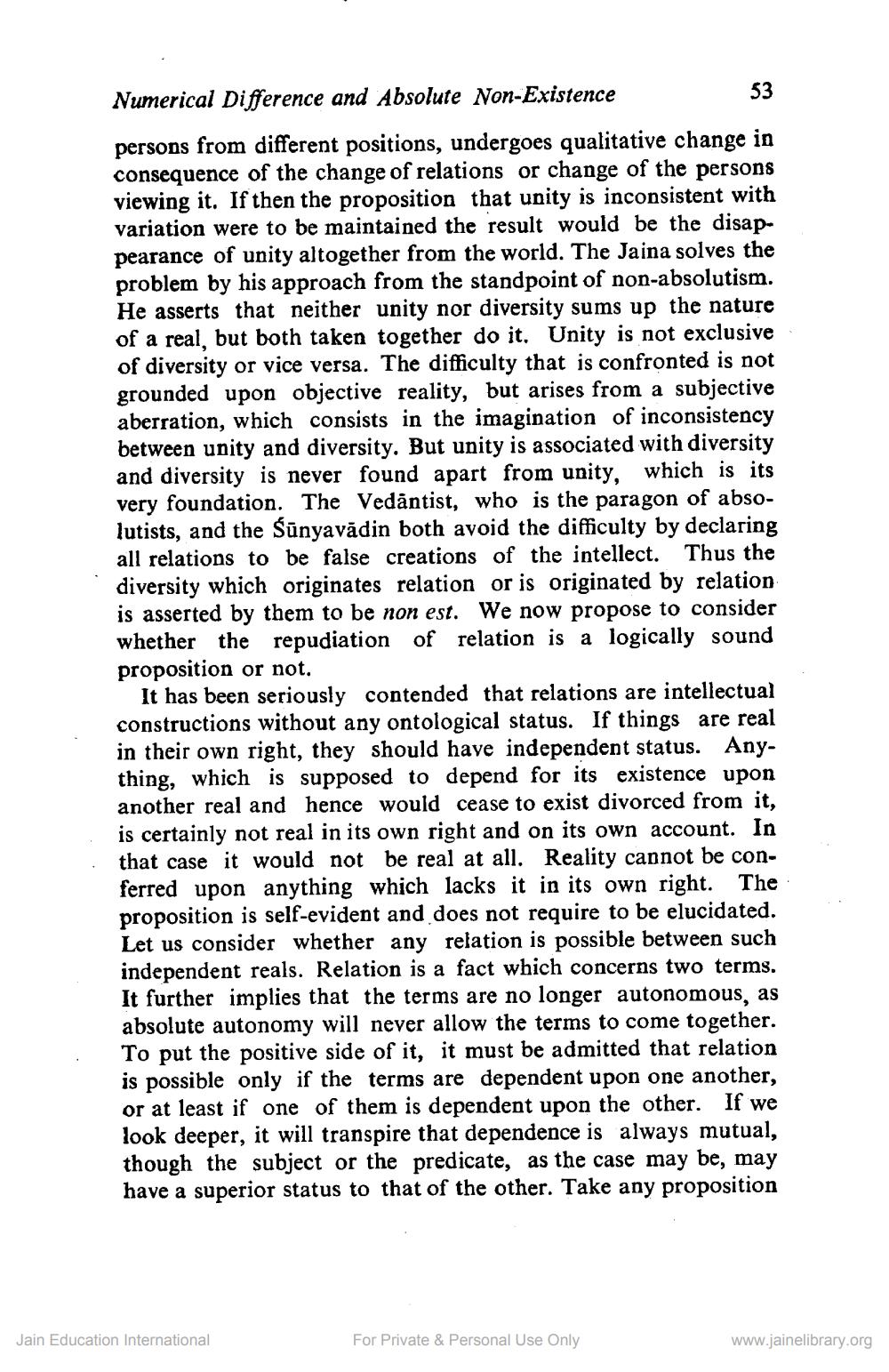________________
53
Numerical Difference and Absolute Non-Existence persons from different positions, undergoes qualitative change in consequence of the change of relations or change of the persons viewing it. If then the proposition that unity is inconsistent with variation were to be maintained the result would be the disappearance of unity altogether from the world. The Jaina solves the problem by his approach from the standpoint of non-absolutism. He asserts that neither unity nor diversity sums up the nature of a real, but both taken together do it. Unity is not exclusive of diversity or vice versa. The difficulty that is confronted is not grounded upon objective reality, but arises from a subjective aberration, which consists in the imagination of inconsistency between unity and diversity. But unity is associated with diversity and diversity is never found apart from unity, which is its very foundation. The Vedantist, who is the paragon of absolutists, and the Sūnyavādin both avoid the difficulty by declaring all relations to be false creations of the intellect. Thus the diversity which originates relation or is originated by relation is asserted by them to be non est. We now propose to consider whether the repudiation of relation is a logically sound proposition or not.
It has been seriously contended that relations are intellectual constructions without any ontological status. If things are real in their own right, they should have independent status. Anything, which is supposed to depend for its existence upon another real and hence would cease to exist divorced from it, is certainly not real in its own right and on its own account. In that case it would not be real at all. Reality cannot be conferred upon anything which lacks it in its own right. The proposition is self-evident and does not require to be elucidated. Let us consider whether any relation is possible between such independent reals. Relation is a fact which concerns two terms. It further implies that the terms are no longer autonomous, as absolute autonomy will never allow the terms to come together. To put the positive side of it, it must be admitted that relation is possible only if the terms are dependent upon one another, or at least if one of them is dependent upon the other. If we look deeper, it will transpire that dependence is always mutual, though the subject or the predicate, as the case may be, may have a superior status to that of the other. Take any proposition
Jain Education International
For Private & Personal Use Only
www.jainelibrary.org




